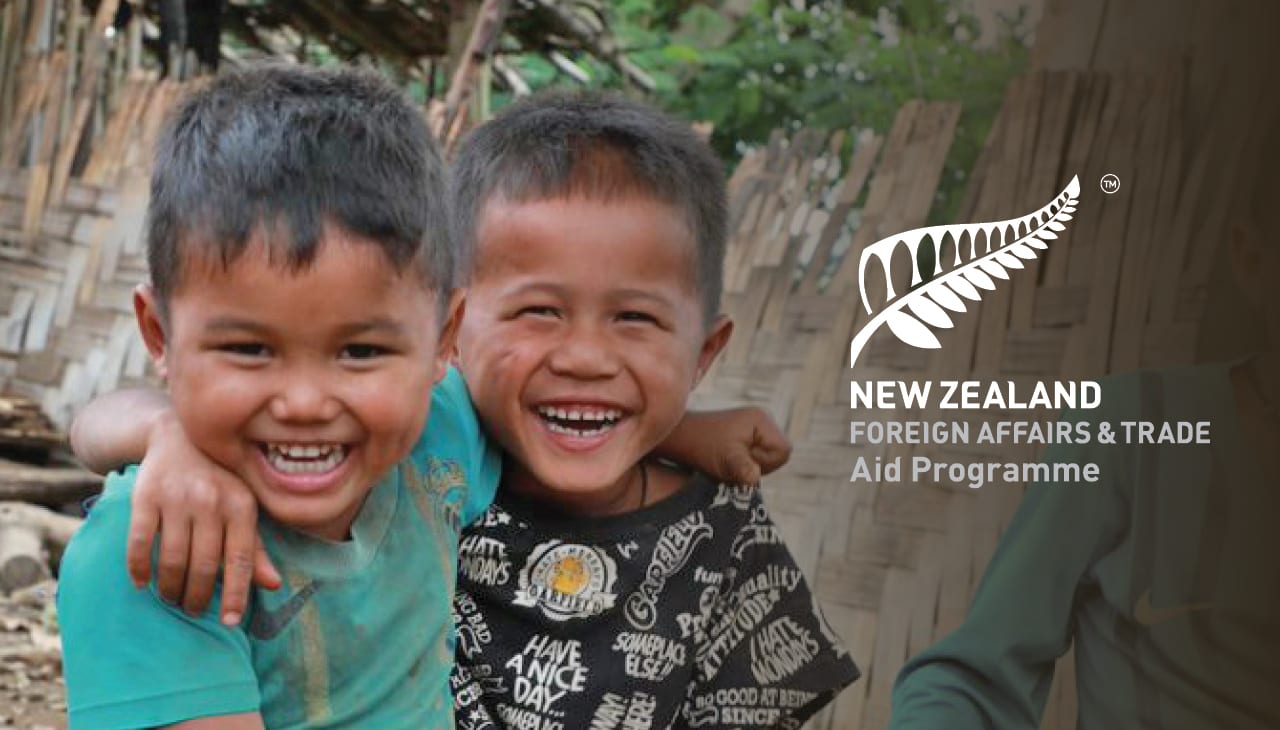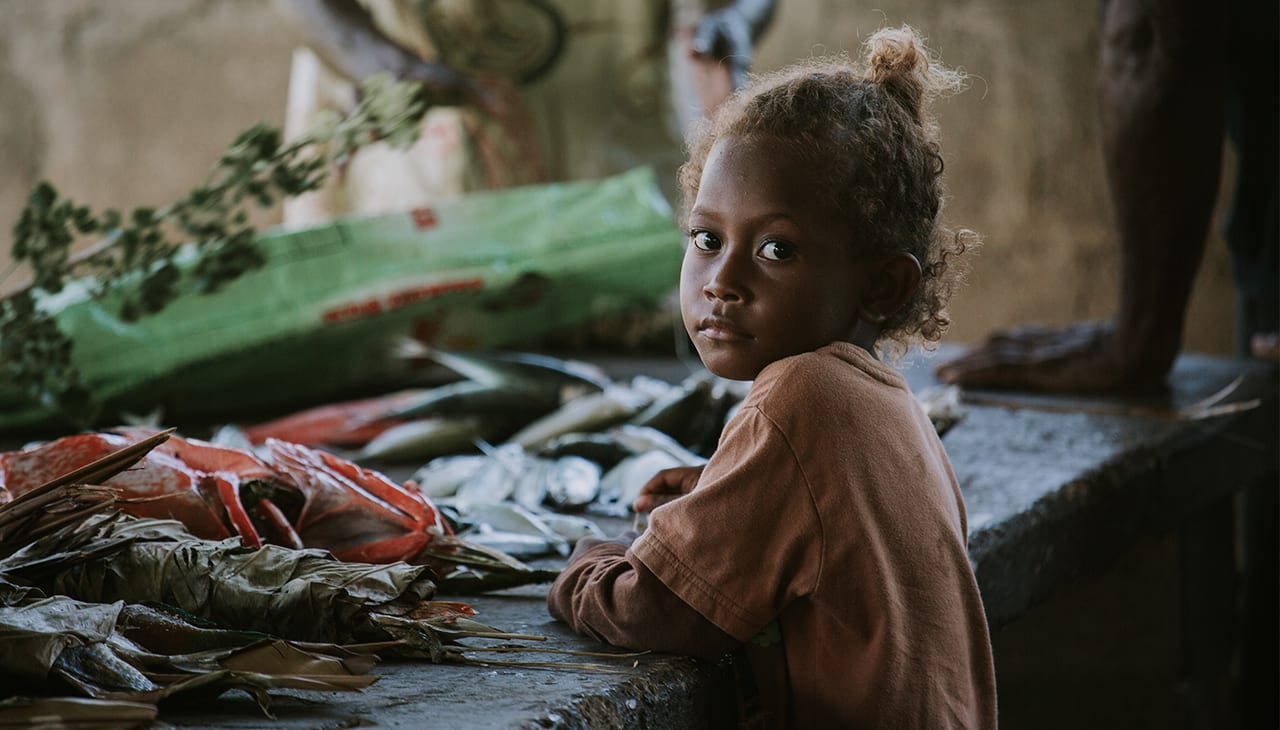Supporting the Pacific
The Pacific is particularly vulnerable to natural disasters and poverty due in part to climate change.
Transforming children's lives in the Pacific and Timor Leste
Melanesian countries are amongst the poorest in the world; one in four families live below the poverty line. They lack access to education, have alarming health indicators, and their homes are incredibly vulnerable to natural disasters. Together with you, we're working with communities across the Pacific and Timor Leste to improve access to education and healthcare, build resilience to climate change and natural disasters, and develop economic opportunities for remote communities.
Partnering to protect children.

Children in the Pacific urgently need your help to grow and thrive.
You can keep kids safe from violence, make sure they have enough nutritious food to grow healthy and strong, and equip struggling families to meet their children's needs.
Your kindness will reach vulnerable children in Papua New Guinea, Solomon Islands, Vanuatu, Laos and Timor-Leste. And thanks to our partnership with the New Zealand Aid Programme, every $1 you donate will grow to $3 worth of protection and care.
Learn more about how you and the New Zealand Aid Programme can transform the lives of the most vulnerable children in the Pacific and South East Asia.
Learn more about the communities we're partnering with in the Pacific:
Pacific communities are suffering from crushing COVID-19 pandemic aftershocks.

The aftershocks of COVID-19, its impacts on livelihoods, hunger, and access to healthcare are devastating communities in the Pacific region and Timor-Leste as much as the virus itself, and sometimes to an even greater extent.
Entire communities are bracing for a post-COVID rebuild which will take years because of wholesale job losses putting children at greater risk of violence and being forced to skip meals, and reducing access to already stretched healthcare.
The Pacific Aftershocks report by World Vision looks at the impact of the pandemic on lives and livelihoods, tipping this to be one of the biggest challenges facing the Pacific in the coming decade and why a once-in-a-generation response is required.
Make real and lasting change in the lives of children and their communities in the Pacific.
Every $1 you donate can grow to $3 thanks to our partnership with the NZ Government's Aid Programme across the Pacific.
Together with your support, we're tackling the root causes of poverty in the Pacific.

Child Protection
The Pacific region has some of the highest rates of violence against women and children in the world. The home is often the most dangerous place, and many live in daily fear of violence.
With your support, we are working to tackle the root causes of violence. We're working alongside communities to protect children vulnerable to violence or abuse by supporting church and community leaders to raise awareness about gender equality, non-violence, and the need to protect people who have been victims of violence.
Learn more about our Child Protection work.

Clean Water
When disaster strikes in the Pacific, vulnerable islands like Papua New Guinea and Vanuatu are hit hard. Infrastructure is wiped out, livelihoods are devastated, and access to the basics for survival becomes tremendously difficult. Often, one of the most precious pillars of survival is hit first – clean water.
Together with your support, we help communities in the Pacific prepare for the worst, building reliable water sources that can be managed and protected even during a natural disaster. We work with communities' local expertise to build the best water systems we can and set up local teams to manage and look after them.
Learn more about our Clean Water work.

Education
For many families in the Pacific, school is so far away or so under-resourced; it's just not an option. For example, in the Solomon Islands, just 9% of children are enrolled in early childhood education, and only about 50% of children go to primary school. Many don't start school until they're 9 or 10 when they are old enough to walk the long distances to the nearest schools.
We're pulling down these barriers to education and working with communities to get all boys and girls in school. This means early childhood, basic primary education, and training for teenagers.
Learn more about our Education work.

Nutritious Food
Locking down a stable food supply in the Pacific isn't always easy, with changing weather patterns and unpredictable natural disasters. When communities cannot grow crops for a few months every year, don't have diverse food, and have poor access to healthcare, malnutrition is left untreated. In Vanuatu, almost 30% of children under five are malnourished.
We're building a more sustainable and resilient food supply with communities in the Pacific through improved farming techniques. This helps with day-to-day meals and growing extra produce for farmers to sell at markets.
Learn more about our work with Nutritious Food.

Family Income
Family gardens in the Pacific not only feed communities they're also an essential part of local economies. But right now, they're under threat. Natural disasters can wipe out infrastructure in a single blow, and our changing climate is slowly eroding the quality of the land being used to plant crops in.
Now is the time to develop other ways of making money, saving up for the future, and helping families navigate their changing environment. So, together with your support, we're helping to set up savings groups with communities, teaching small business skills, and introducing micro-finance opportunities.
Learn more about our Family Income work.

Healthcare
When the climate is tipped out of balance, families in the Pacific bear the brunt. Droughts ruin crops, food becomes scarce, and children become malnourished. And because so many of these islands are remote and isolated, healthcare centres aren’t always handy. Often, they’re hours away –a boat ride followed by a truck ride, and on sometimes challenging seas and roads.
We’re working with communities to bring healthcare closer, by training locals about healthcare, sanitation, and nutrition, and partnering with local health centres to raise awareness.
Learn more about our Healthcare work.
Make real and lasting change in the lives of children and their communities in the Pacific.
Every $1 you donate can grow to $3 thanks to our partnership with the NZ Government's Aid Programme across the Pacific.



